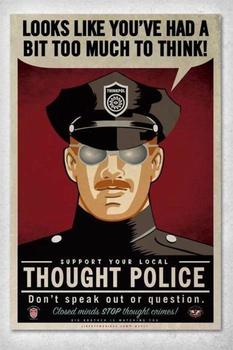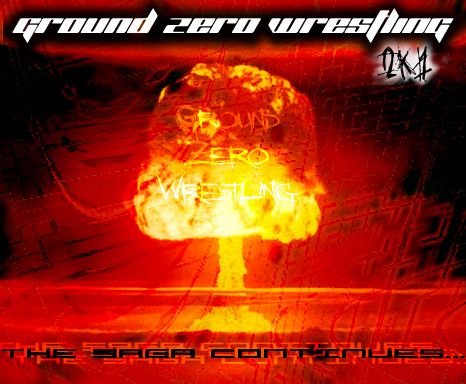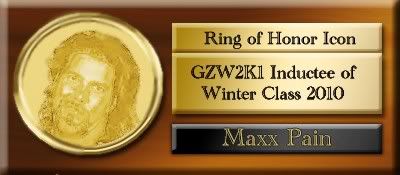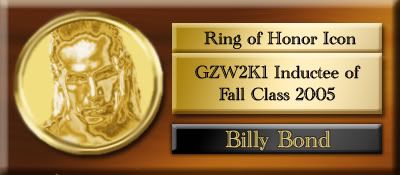Post by Head Booker on May 15, 2007 18:56:56 GMT -6
Brock Lesnar felt like "The Next Big Thing" every time he stood in the center of a wrestling ring with a microphone in his massive hands. He'd snarl and bark and shout and send 20,000 people into a frenzy.
The feeling of manipulating a crowd was intoxicating.
"It feels like nothing else," he says now. "It's in my blood to stay."
The high came, however, with a price tag so steep that Lesnar ultimately decided it was worth chucking the fame, the money and the adoration he received.
The small-town farm boy from South Dakota learned after 4 ½ years as one of the biggest names in professional wrestling that a night in a Minnesota deer stand sure beat one in a hotel room on the Champs-Élysées.
Professional wrestling made him rich and famous, landed him a wife beautiful enough that she twice graced the cover of Playboy and brought him to nearly every corner of the world.
But Lesnar found himself miserable, not knowing where he was, where he was going and how he was going to survive.
He visited some of the world's great cities, but his travel schedule was so brutal that he never got to see them.
"All I know about most of them is the airport, the hotel and the arena," he says.
Yeah, the paychecks were great. And, yeah, being able to toy with the emotions of so many people was neat.
Glamorous, though? Perhaps to some, but flying more than a quarter of a million miles a year and driving close to that amount wasn't Lesnar's idea of fun.
The grind led him to scrap wrestling and become a professional mixed martial artist. He's headlining the first MMA card he's ever fought on, when he takes on massive 7-foot-2 South Korean Hong-Man Choi on June 2 at the Los Angeles Coliseum.
"Nobody has a clue what that lifestyle is like," Lesnar says of the life of a world-class pro wrestler. "I was really blindsided when I got into the entertainment industry. I had no clue. I thought maybe I'd be out one night a week, two on a busy one, but I had no clue what I was getting into.
"People say, 'You're making all this money and you're going to all these great places, how lucky are you?' I wanted to tell them, 'You can have it.' I wasn’t prepared for it. Maybe some people are prepared for that, but I wasn't. I’m a redneck out of South Dakota and I love to hunt and fish. Every time I got onto the airplane, I wanted to be in a deer stand or with my daughter. I was just out of my element."
He was out of his element from the day he signed with Vince McMahon's WWE. He had just won the NCAA heavyweight wrestling title at the University of Minnesota, and had no idea what he was about to do for a living when McMahon came calling.
McMahon offered him a $250,000 contract at a time, he says, "when I'm not sure I had a quarter in my pocket."
Lesnar, who was married briefly to Rena Mero, the ex-WWE diva known as "Sable," is a massive man with a personal charisma that rivals Hulk Hogan's. He knows how to work a crowd, has the heavily muscled body the wrestling crowd craves and has the amateur background that immediately made him a main event fighter.
He quit the WWE in 2004 and had an aborted attempt to make the NFL's Minnesota Vikings as a defensive lineman. He had no background in football and, though he was a talented athlete, was light years away from being ready.
He had a chance to play in NFL Europe and declined, though he hardly considers his foray into football a waste.
"You can't be afraid to fail," Lesnar says. "And you can't worry about what other people think. I've never worried about what people thought. I always have believed that if I put the time in and prepare myself to the best of my abilities and I gave all of myself, whatever the outcome is is what it is. I’m a success in that regard no matter what.
"Different people view success differently. To some people, success is making a lot of money. Some think it's having a 30-0 record and winning the championship. To me, it's being happy and knowing I've worked hard and done all I can do to prepare myself."
Lesnar credits his one-time high school wrestling coach, John Schiley, for teaching him to be a professional. Schiley ran a youth program in South Dakota and made an indelible impression on the future world champion.
As good as Lesnar was, Schiley never allowed him to cut corners.
"There was a time academics and I just didn't get along," Lesnar says. "But he'd kick me in the (expletive). He made sure I was in class and getting good grades and actually paying attention and learning. It was clear from the first day that if you’re not passing, you're not wrestling.
"He made it exciting for us. He had 1-on-1 personal relationships with the kids, which a lot of athletes don’t have with their coaches, and he really cared. He was the kind of guy who made sure you had fun. You had to work, but he made it exciting and fun and you wanted to be there because of him."
Lesnar retains that Schiley influence now as a budding MMA fighter.
Lesnar has worked for the last year to prepare and believes he's finally found his calling. He’s training along with UFC lightweight champion Sean Sherk and learning, he says, every day.
His coach, Greg Nelson, of the Minnesota Martial Arts Academy, says Lesnar's athletic ability has made the transition easier than it would be for most. Lesnar's wrestling has remained sharp, Nelson says, because he's trained with Cole Konrad, who won the 2006 and 2007 NCAA heavyweight wrestling titles while at the University of Minnesota.
But Nelson thinks those who expect Lesnar to be a one-dimensional fighter will be surprised.
"This guy is a phenomenally gifted athlete," Nelson says. "If you saw him when he won the (2000 NCAA) championship, you know what he's like. People who saw that said he looked like a lightweight moving around out there.
"His striking is something I hear about a lot, but I can tell you that his striking is very good. He's loose and he has great timing with his punches. His submission game is really climbing. He's already one of the top guys."
Most of the top MMA fighters have strong wrestling backgrounds, but few are as accomplished in that arena as Lesnar.
And though he'll be at a size disadvantage against Choi, he's not concerned. Once the fight gets to the ground, and it will get to the ground grunts Lesnar, Choi will be in big trouble.
"You can learn things like Muay Thai and jiu-jitsu and boxing in a relatively short amount of time, but you can't learn to be a great wrestler overnight," Lesnar says. "That's why so many guys who are so successful in this sport have wrestling as their base. If I had to go out for a night on the town and was going to run into trouble, I would want 10 wrestlers with me.
"I'm adapting, I believe, very well. Obviously, it's an evolutionary process, but I feel I've had a great training camp. It's getting down to crunch time. I've got my hand on the door knob and I'm waiting to blow through the door. I can't wait for that moment. This is what I've really wanted to do all my life."
Nelson says it shows in his training. He's been eager for more repetitions and has covered more ground in a short period of time than Nelson had ever thought possible.
Though Choi, at 7-2 and 365 pounds presents a unique challenge, Nelson is confident.
"Honestly, I don't think Choi's going to be able to deal with Brock's explosiveness," Nelson says. "We don't want to get into a kickboxing fight with him, but he's not a fast guy on his feet. He's big, he's huge and he has an enormous reach and those things by themselves present challenges.
"But he's got slow feet and isn't going to be able to move like Brock. I see it a lot like when Randy Couture fought Tim Sylvia (for the UFC heavyweight title in March). Randy was 43 and no one would have thought that he could have beaten a big guy like Tim, but his athleticism and ability to think and move countered a bigger, slower guy.
"That's how this fight is going to go, I believe. Brock's so athletic and so explosive, you'll forget all about the size real quickly. "
And if Nelson is correct, in a sport dying for good heavyweights, Lesnar just might become MMA's "Next Big Thing."
credit Yahoo! Sports News

The feeling of manipulating a crowd was intoxicating.
"It feels like nothing else," he says now. "It's in my blood to stay."
The high came, however, with a price tag so steep that Lesnar ultimately decided it was worth chucking the fame, the money and the adoration he received.
The small-town farm boy from South Dakota learned after 4 ½ years as one of the biggest names in professional wrestling that a night in a Minnesota deer stand sure beat one in a hotel room on the Champs-Élysées.
Professional wrestling made him rich and famous, landed him a wife beautiful enough that she twice graced the cover of Playboy and brought him to nearly every corner of the world.
But Lesnar found himself miserable, not knowing where he was, where he was going and how he was going to survive.
He visited some of the world's great cities, but his travel schedule was so brutal that he never got to see them.
"All I know about most of them is the airport, the hotel and the arena," he says.
Yeah, the paychecks were great. And, yeah, being able to toy with the emotions of so many people was neat.
Glamorous, though? Perhaps to some, but flying more than a quarter of a million miles a year and driving close to that amount wasn't Lesnar's idea of fun.
The grind led him to scrap wrestling and become a professional mixed martial artist. He's headlining the first MMA card he's ever fought on, when he takes on massive 7-foot-2 South Korean Hong-Man Choi on June 2 at the Los Angeles Coliseum.
"Nobody has a clue what that lifestyle is like," Lesnar says of the life of a world-class pro wrestler. "I was really blindsided when I got into the entertainment industry. I had no clue. I thought maybe I'd be out one night a week, two on a busy one, but I had no clue what I was getting into.
"People say, 'You're making all this money and you're going to all these great places, how lucky are you?' I wanted to tell them, 'You can have it.' I wasn’t prepared for it. Maybe some people are prepared for that, but I wasn't. I’m a redneck out of South Dakota and I love to hunt and fish. Every time I got onto the airplane, I wanted to be in a deer stand or with my daughter. I was just out of my element."
He was out of his element from the day he signed with Vince McMahon's WWE. He had just won the NCAA heavyweight wrestling title at the University of Minnesota, and had no idea what he was about to do for a living when McMahon came calling.
McMahon offered him a $250,000 contract at a time, he says, "when I'm not sure I had a quarter in my pocket."
Lesnar, who was married briefly to Rena Mero, the ex-WWE diva known as "Sable," is a massive man with a personal charisma that rivals Hulk Hogan's. He knows how to work a crowd, has the heavily muscled body the wrestling crowd craves and has the amateur background that immediately made him a main event fighter.
He quit the WWE in 2004 and had an aborted attempt to make the NFL's Minnesota Vikings as a defensive lineman. He had no background in football and, though he was a talented athlete, was light years away from being ready.
He had a chance to play in NFL Europe and declined, though he hardly considers his foray into football a waste.
"You can't be afraid to fail," Lesnar says. "And you can't worry about what other people think. I've never worried about what people thought. I always have believed that if I put the time in and prepare myself to the best of my abilities and I gave all of myself, whatever the outcome is is what it is. I’m a success in that regard no matter what.
"Different people view success differently. To some people, success is making a lot of money. Some think it's having a 30-0 record and winning the championship. To me, it's being happy and knowing I've worked hard and done all I can do to prepare myself."
Lesnar credits his one-time high school wrestling coach, John Schiley, for teaching him to be a professional. Schiley ran a youth program in South Dakota and made an indelible impression on the future world champion.
As good as Lesnar was, Schiley never allowed him to cut corners.
"There was a time academics and I just didn't get along," Lesnar says. "But he'd kick me in the (expletive). He made sure I was in class and getting good grades and actually paying attention and learning. It was clear from the first day that if you’re not passing, you're not wrestling.
"He made it exciting for us. He had 1-on-1 personal relationships with the kids, which a lot of athletes don’t have with their coaches, and he really cared. He was the kind of guy who made sure you had fun. You had to work, but he made it exciting and fun and you wanted to be there because of him."
Lesnar retains that Schiley influence now as a budding MMA fighter.
Lesnar has worked for the last year to prepare and believes he's finally found his calling. He’s training along with UFC lightweight champion Sean Sherk and learning, he says, every day.
His coach, Greg Nelson, of the Minnesota Martial Arts Academy, says Lesnar's athletic ability has made the transition easier than it would be for most. Lesnar's wrestling has remained sharp, Nelson says, because he's trained with Cole Konrad, who won the 2006 and 2007 NCAA heavyweight wrestling titles while at the University of Minnesota.
But Nelson thinks those who expect Lesnar to be a one-dimensional fighter will be surprised.
"This guy is a phenomenally gifted athlete," Nelson says. "If you saw him when he won the (2000 NCAA) championship, you know what he's like. People who saw that said he looked like a lightweight moving around out there.
"His striking is something I hear about a lot, but I can tell you that his striking is very good. He's loose and he has great timing with his punches. His submission game is really climbing. He's already one of the top guys."
Most of the top MMA fighters have strong wrestling backgrounds, but few are as accomplished in that arena as Lesnar.
And though he'll be at a size disadvantage against Choi, he's not concerned. Once the fight gets to the ground, and it will get to the ground grunts Lesnar, Choi will be in big trouble.
"You can learn things like Muay Thai and jiu-jitsu and boxing in a relatively short amount of time, but you can't learn to be a great wrestler overnight," Lesnar says. "That's why so many guys who are so successful in this sport have wrestling as their base. If I had to go out for a night on the town and was going to run into trouble, I would want 10 wrestlers with me.
"I'm adapting, I believe, very well. Obviously, it's an evolutionary process, but I feel I've had a great training camp. It's getting down to crunch time. I've got my hand on the door knob and I'm waiting to blow through the door. I can't wait for that moment. This is what I've really wanted to do all my life."
Nelson says it shows in his training. He's been eager for more repetitions and has covered more ground in a short period of time than Nelson had ever thought possible.
Though Choi, at 7-2 and 365 pounds presents a unique challenge, Nelson is confident.
"Honestly, I don't think Choi's going to be able to deal with Brock's explosiveness," Nelson says. "We don't want to get into a kickboxing fight with him, but he's not a fast guy on his feet. He's big, he's huge and he has an enormous reach and those things by themselves present challenges.
"But he's got slow feet and isn't going to be able to move like Brock. I see it a lot like when Randy Couture fought Tim Sylvia (for the UFC heavyweight title in March). Randy was 43 and no one would have thought that he could have beaten a big guy like Tim, but his athleticism and ability to think and move countered a bigger, slower guy.
"That's how this fight is going to go, I believe. Brock's so athletic and so explosive, you'll forget all about the size real quickly. "
And if Nelson is correct, in a sport dying for good heavyweights, Lesnar just might become MMA's "Next Big Thing."
credit Yahoo! Sports News

















